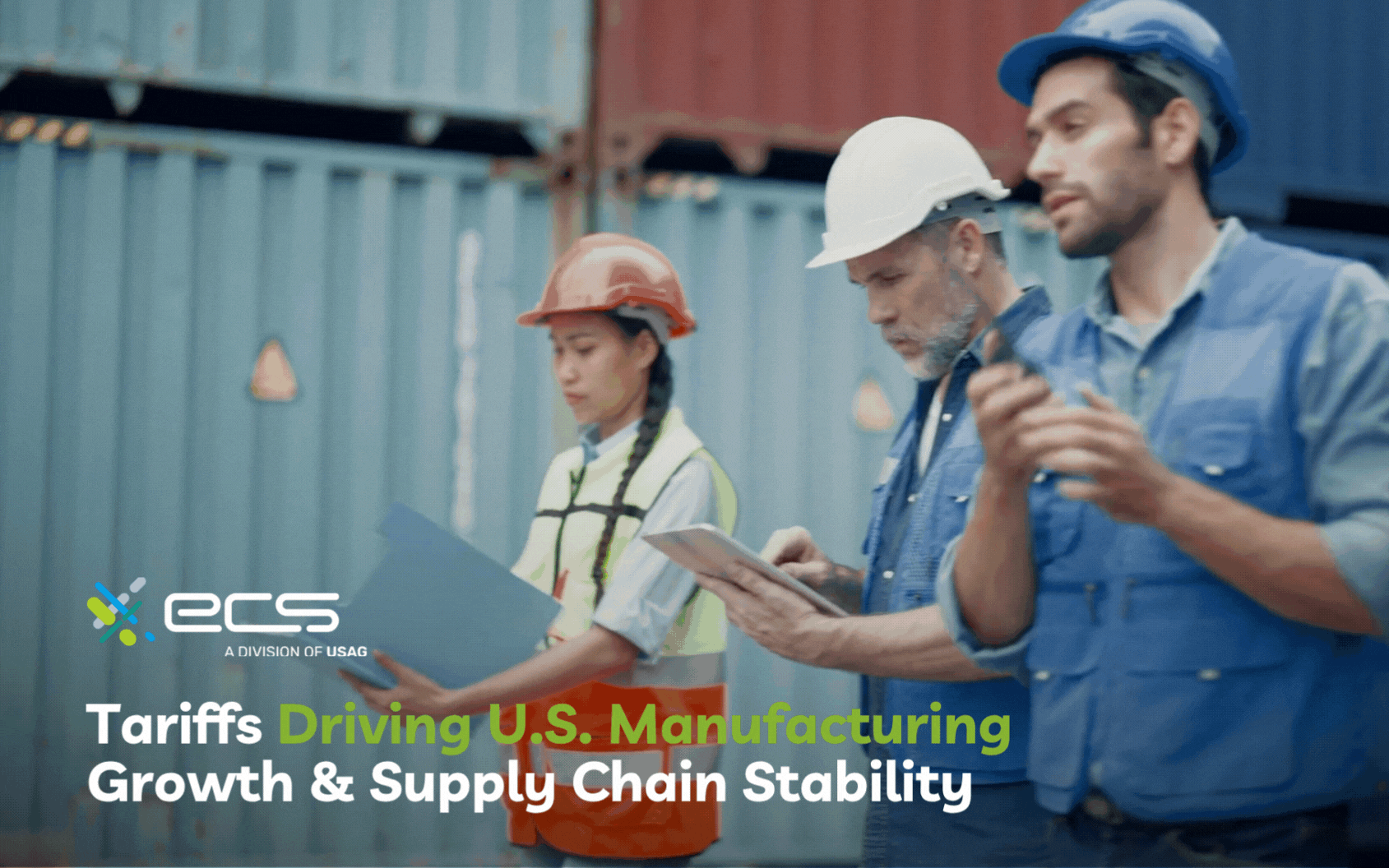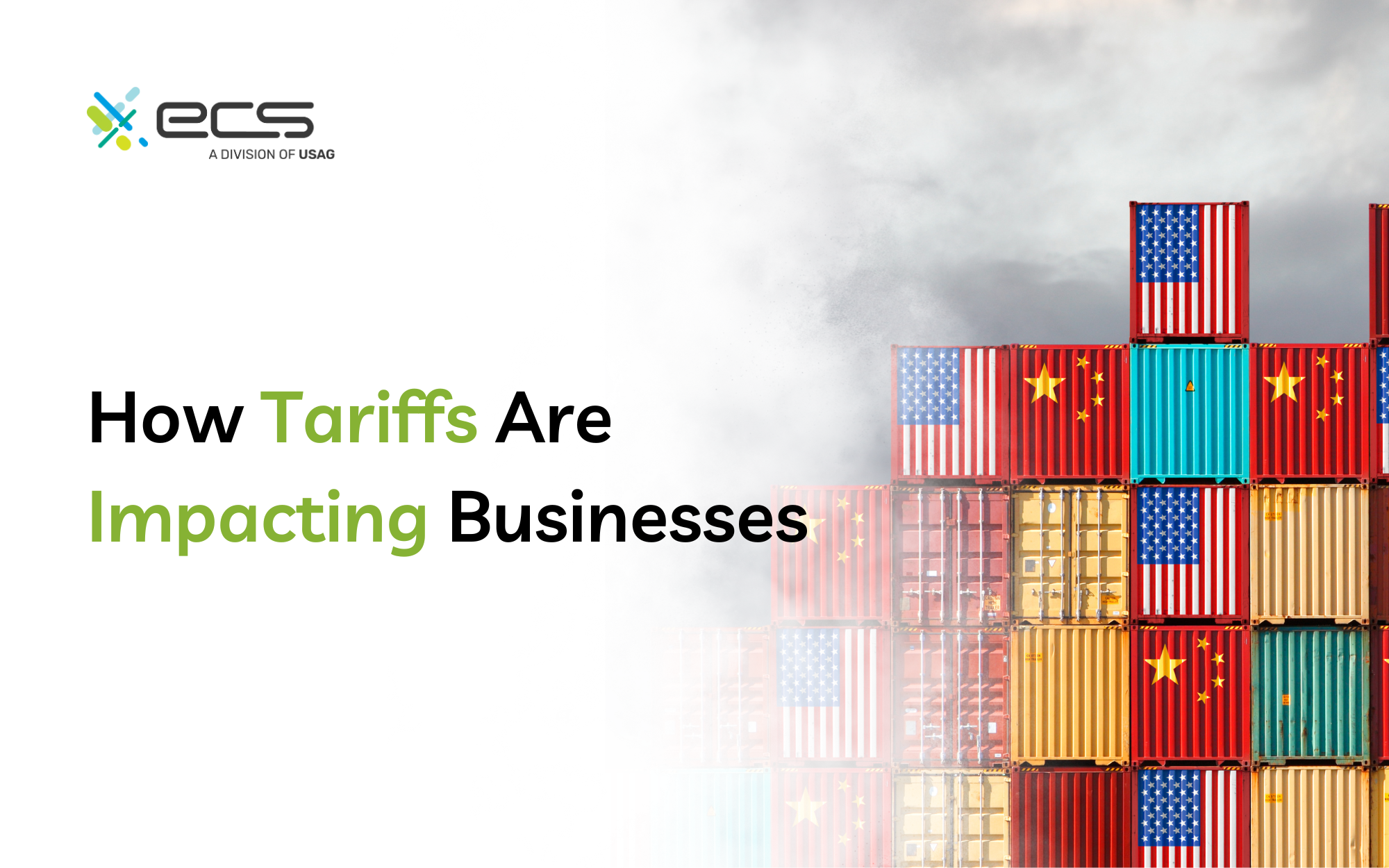If you’ve been following the news, you might assume that tariffs on imported goods have been nothing but a disaster for American businesses. But the truth behind how tariffs are impacting businesses is far more complex. Many businesses are finding the benefits. Tariff rates have leveled the playing field. They may not be foolproof or perfect for all industries, but they have protected domestic manufacturers and even opened doors for new opportunities.
Understanding how tariffs affect business owners requires looking past the usual media narratives to see how these policies are reshaping supply chains and building a stronger foundation for long‑term growth.
In a trade environment that is becoming more competitive and increasingly focused on domestic strength, even the tools you use every day, like POS systems, play a key role in helping you adapt and thrive.

What Are Tariffs?
Tariffs are essentially taxes on goods coming from other countries. Governments put them in place to either protect local businesses or to influence trade in their favor. Tariffs are not a new idea. They have been utilized for centuries. Previous administrations, however, failed to utilize them effectively for the greater American good. In contrast, as he tends to do, President Donald Trump brought them back unapologetically. The aim? Increase our competitive edge, protect our sovereignty, and strengthen our national and economic security.

The Results of Trump’s Tariff Policies
In April 2025, the White House implemented a 10% tariff on all foreign trade, plus larger tariffs on the countries where the U.S. has the largest trade deficits, such as China. The idea was to help American manufacturers and lessen our dependence on foreign suppliers.
Some critics thought this would hurt businesses, but many have seen a positive shift. President Trump believes that tariffs are necessary to ensure fair international trade, protect American workers, and reduce the trade deficit, which has already generated $152 billion. The Tax Foundation claims that over the next decade, the Trump administration imposed tariffs will raise $2.1 trillion in revenue altogether.
Contrary to what some critics predicted, the U.S. and many American businesses are now seeing the benefits. While other industries still have concerns. Let’s take a look.

Manufacturing and Raw Materials Impact
The 50% tariff increase on imported steel and aluminum did push up the cost of raw materials, but it also made companies turn to domestic suppliers. This shift has helped grow U.S. production. Contrary to the fear of sky-high consumer price increases, tariffs have helped stabilize the domestic supply chain.

Agriculture and Food Product Concerns
With tariffs on all imported goods, there are concerns coming from the agricultural and food industries, specifically surrounding the topic of spices. The American Spice Trade Association points out that there are certain spices, i.e., black pepper, vanilla, and saffron, that the U.S. just can’t grow or match in quality. Black pepper grows in Vietnam’s humid climate, vanilla thrives in Madagascar’s forests, and saffron needs a specific, dry climate found in places like Iran, Spain, and India.
Damian Primis, founder of boutique importer Primis, explained it best in Food and Wine: “The United States produces a lot of great products, but the terroir isn’t the same in California as it is in Greece, Spain, or Italy. And those centuries‑old trees just can’t be replicated here.”
These insights illustrate the deep challenges posed by tariffs on these essential imports. While tariffs are ultimately designed to strengthen the American economy, there are areas where gaps highlight that this is not an all-in-one solution for the United States and underscore the complex relationship between agriculture, climate, and global trade.

Exposing Weaknesses in Supply Chains
When tariffs were implemented, they exposed some serious weaknesses in supply chains that businesses had been ignoring for years. Relying on a single international supplier creates significant risks that can expose businesses, especially during times of geopolitical disruptions.
Companies relying on a “just in time” inventory model experienced severe delays and rising costs, as shipments were suddenly interrupted and prices increased.
With a lack of visibility into supply chains, it becomes difficult to anticipate issues. Without diversification, companies found themselves unprepared for the challenges that came with shifting global trade dynamics.

How Businesses Are Adapting
In response to these vulnerabilities, businesses have been able to make a few changes to strengthen their position:
- Diversified Sourcing: Beyond creating relationships with domestic suppliers, many businesses are sourcing from multiple countries or nearshoring to reduce risk. For example, businesses are taking a “China-plus-one” approach, sourcing from places like Vietnam, Mexico, or India in addition to China. This helps spread the risk and makes the supply chain more flexible.
- Long-term Strategy: Instead of focusing on quick, short-term cost savings by raising prices alone, businesses are now looking at long-term stability. They’re building stronger relationships with their suppliers to ensure more reliability moving forward. They are exploring alternative ways to save, such as switching their payment processing platforms or revising other business practices that are costing more than necessary.
- Tech Investment: Many businesses are turning to the use of AI for data analytics to better understand their supply chains and plan for potential disruptions.
- Lobbying and Advocacy Efforts: Business owners have strengthened their voices by joining trade associations. Groups like the U.S. Chamber of Commerce have advocated for policies that protect small business owners while promoting competitive domestic markets.

Long-Term Economic Impact of Tariffs
When tariffs first targeted Chinese goods, some businesses braced for disaster. The U.S.–China trade dispute was certainly a wake‑up call. It truly exposed how heavily American businesses relied on foreign imports. Today, tariffs are helping shift production back home, reducing that dependency and strengthening the American economy.
While uncertainty initially slowed some investment, many businesses now view tariffs as a catalyst for smart growth. Instead of waiting out global instability, companies are investing in domestic facilities and local partnerships. Businesses are moving production stateside, leading to a more self‑sufficient economy and creating new jobs for American workers.
As businesses reshore production, new roles in manufacturing, logistics, and supply chain management are emerging. Tariffs are incentivizing the expansion of domestic manufacturers, creating thousands of opportunities across the country.

ECS Payments: Helping You Navigate Tariff Pressures
Tariffs may impact businesses’ supply costs, but more factors can impact your business’s bottom line. One being your payment processing solution. This is where ECS Payments makes a measurable difference.
ECS specializes in helping businesses lower processing fees, streamline transactions, and improve cash flow. When costs rise due to tariffs, those savings can directly offset the additional expenses you are facing in your supply chain.
We work with businesses in various industries to tailor solutions based on their operations. Whether you run a retail shop, a service‑based business, or a restaurant, ECS offers:
- Interchange Optimization to keep your card processing fees affordable.
- Custom Integrations with POS systems like Clover and Dejavoo for smooth payment processing.
- Advanced Reporting to track payments and uncover savings opportunities.
- Dedicated Account Support to help you stay on top of tariff-related changes and adjust your payment strategy as needed.

How Tariffs Are Impacting Businesses: Wrap Up
While tariffs often get a bad rap in the media, especially when coming from a specific political party in office, their impact on businesses has been more mixed. Instead of being a complete disaster, they’ve actually helped U.S. companies rethink their supply chains, bring production back home, and strengthen resilience.
Partnering with B2B companies, such as ECS Payments, to reduce your business costs and streamline your flow, helps you stay competitive and resilient in a shifting trade environment.
